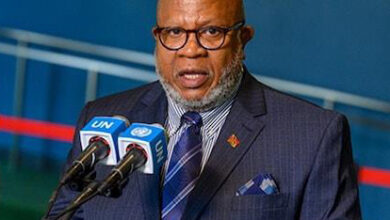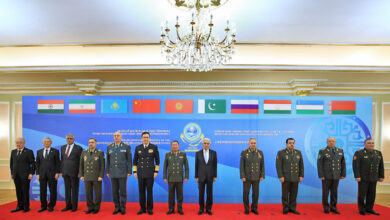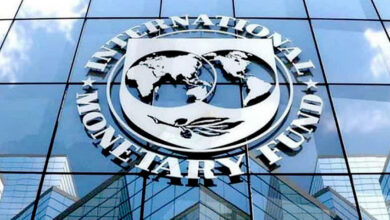Un Peacekeeping: A Force to Reckon
United Nations (UN) Secretary General António Guterres acknowledges the help of peacekeeping force in a year marked by war
By R. Anil Kumar
-
Peacekeepers serve in the world’s most volatile environments, risking their own lives to protect others from catastrophic conflict and build durable peace
-
The threats they face are greater than ever, with rising geopolitical tensions, more complex conflict, and the weaponization of digital tools against peacekeepers and the communities they serve.
-
Missions are also being given ambitious mandates that are often beyond their capacity to deliver: Guterres
UNITED NATIONS, February 4. The past twelve months have been remarkably challenging. It was “a year of enormous suffering and violence,” UN Secretary General António Guterres acknowledged.

“Wars are growing in number and ferocity.” Conflict-related deaths reached a 28-year high, with full quarter of humanity living in conflict-affected areas.
In some of the world’s most deadly conflicts, UN teams worked hard to promote peace and deliver humanitarian assistance, but UN Member States remained polarized and divided and despite the growth in conflict.
“Every peacekeeper serves with honour, upholding our standards and the image and credibility of the entire UN. This is an essential requirement for acceptance by local communities and to effectively implement our mandates, Guterres said and added that the “The vast majority of our peacekeepers meet this responsibility. Unfortunately, the terrible actions of a small minority cast a shadow on the honourable work of so many, some of whom have given the ultimate sacrifice, the Secretary General said.”
Amidst these challenges, in 2023,88 thousand peacekeepers from 125 countries served in 12 missions around the world, partnering to protect and advance peace for millions of people.
They helped support political solutions to conflict, supported ceasefires, protected civilians from violence, protected human rights, and helped to build state capacity in key areas that will help countries maintain security without UN support.
They also took on tasks like helping humanitarians deliver aid to communities in need, observing and monitoring, and removing explosive remnants of war to address immediate threats to populations. Fifty-nine of those peacekeepers gave their lives in the service of peace.
Despite this progress, growing division among Member States often limited peacekeeping operations’ ability to perform their vital work.
The remaining missions cannot succeed alone. In 2024, they will work to strengthen performance, and find innovative solutions to rapidly evolving challenges.
But their success depends on whether the UN membership is willing to harness the power of multilateral solutions. With Member State support, peacekeeping has led to extraordinary results over its 75-year history, transforming countries such as Cambodia, Liberia, Namibia, Sierra Leone, and Timor Leste.
Only working together can we continue to be a force for peace for the millions of people in the world who depend on the Blue Helmets every day, Guterres stated.
“The United Nations is not designed as a group of like-minded countries, but as a platform for dialogue, even for those who might fundamentally disagree with each other. If we can improve UN peacekeeping capacity around the world, more armed conflicts will be under control, brought towards peaceful solutions, and the risk of a third world war will be defused the UN Secretary General said.”
 Under-Secretary-General for Peace Operations, Jean-Pierre Lacroix said the ultimate objective of peacekeeping is to help resolve conflict by supporting parties to secure and implement peace agreements and related political processes.
Under-Secretary-General for Peace Operations, Jean-Pierre Lacroix said the ultimate objective of peacekeeping is to help resolve conflict by supporting parties to secure and implement peace agreements and related political processes.
“Its success, in this regard, over its 75-year history should not be forgotten in the fog of war that continues to ravage the world’s most fragile nations and populations,” he said.
“United Nations Peacekeeping is at a crossroads. A surge in attacks, complex mandates, new conflicts, and old disputes mean that rising to this challenge requires a renewed commitment and robust partnerships, including among Member States,” Lacroix stated.
“But peacekeeping is not a magic wand and cannot succeed alone. Securing sustainable peace requires the political will and active, united engagement of Member States, Lacroix said.”





